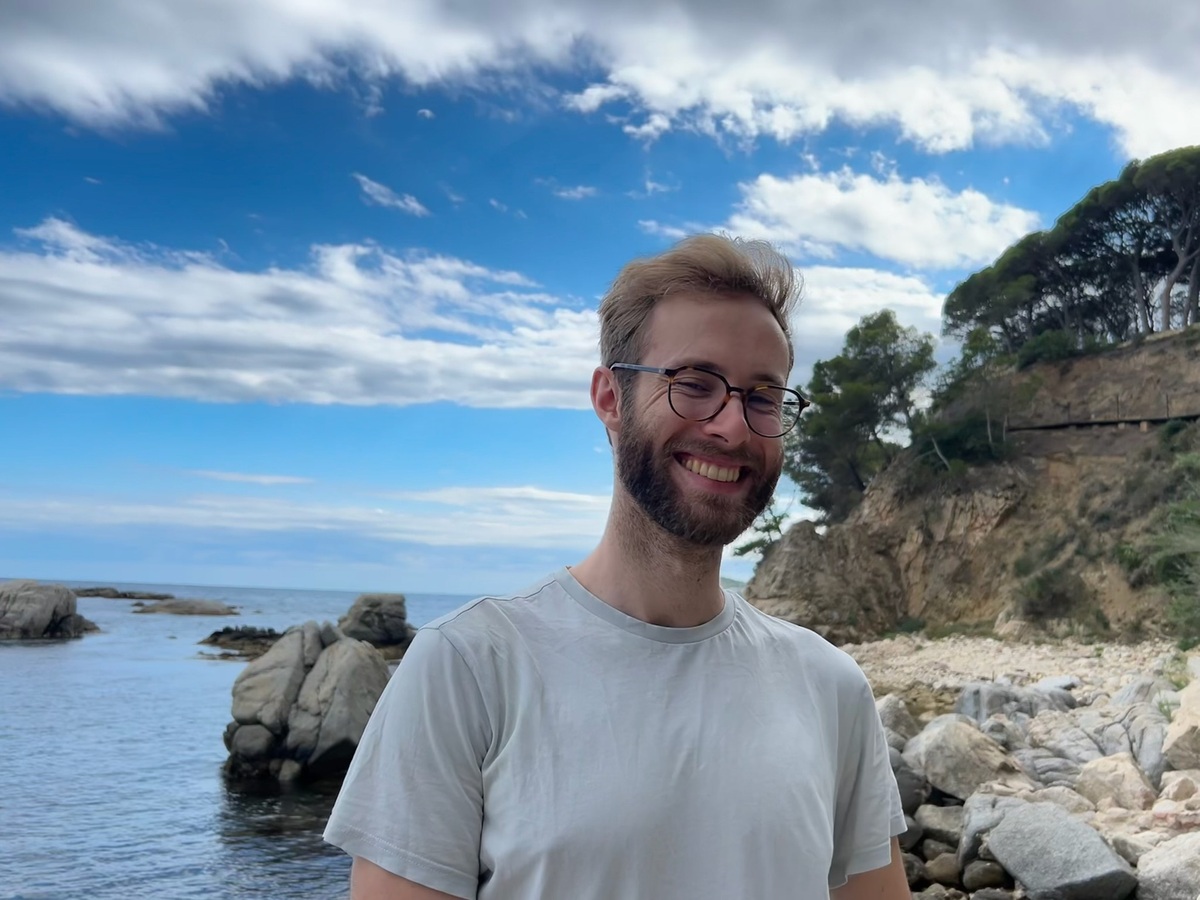"If you come across something you don't understand, you can talk to an expert who can help you"
Lukas Bär studied computer science at KIT, joining the AiMat group first for a project and then for his master's thesis. He then left KIT to work at Sanofi, where he applies machine learning to drug discovery and development.
What is your relation to the AiMat group and KIT? What was your role and position in the group?
After my first semester, I joined the AIMat group as a Master's student for a one-year project. Working in a group of three, we combined VR and machine learning to improve our understanding of molecular behaviour. I then continued working with the group on my master's thesis, and later as a student assistant, investigating methods for efficiently selecting small datasets to train machine learning models to recognise the behaviour and interactions of molecules. In total, I was part of the group for almost 2.5 years and enjoyed every bit of it.
How does combining computer science with fields like chemistry, physics, and materials science lead to innovative research outcomes?
I think the huge benefit of combining different fields is bringing together people with different perspectives on a problem, who also have in-depth knowledge of various topics. I have always valued working in such an environment, where it is easy to find someone with strong knowledge of almost any problem that arises. In such a group, it is easy to gain a basic — or often deeper — understanding of various topics that contribute to a bigger picture.
How do you approach problem-solving when working with experts from different scientific backgrounds?
I think you'll almost always find someone with a lot of knowledge on a topic you're not familiar with in a group of skilled people from different fields. This means that you can fully focus on your own research topic, and if you come across something you don't understand, you can talk to an expert who can help you. This means that you don't have to spend a lot of time on things that aren't the core of your work. The most important thing I have learned is that no one person can be an expert in everything within a field, and that it is important to select the areas in which you want to be an expert, as well as knowing when to rely on others.
In your opinion, what does the future hold for interdisciplinary research, and how can it drive progress in both technology and science?
I have noticed that interdisciplinary research is becoming increasingly important. I think increasingly complex technology will continue to increase the demand for natural scientists to collaborate with computer scientists, and vice versa. As a result, the demand for new scientific research in these interdisciplinary fields will also rise.

